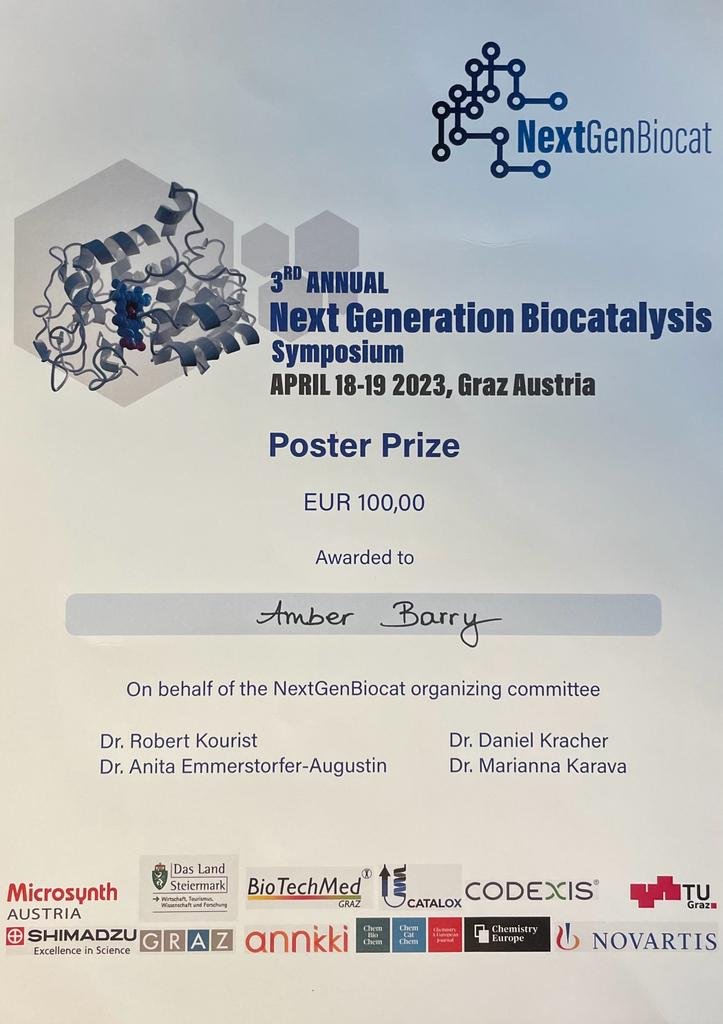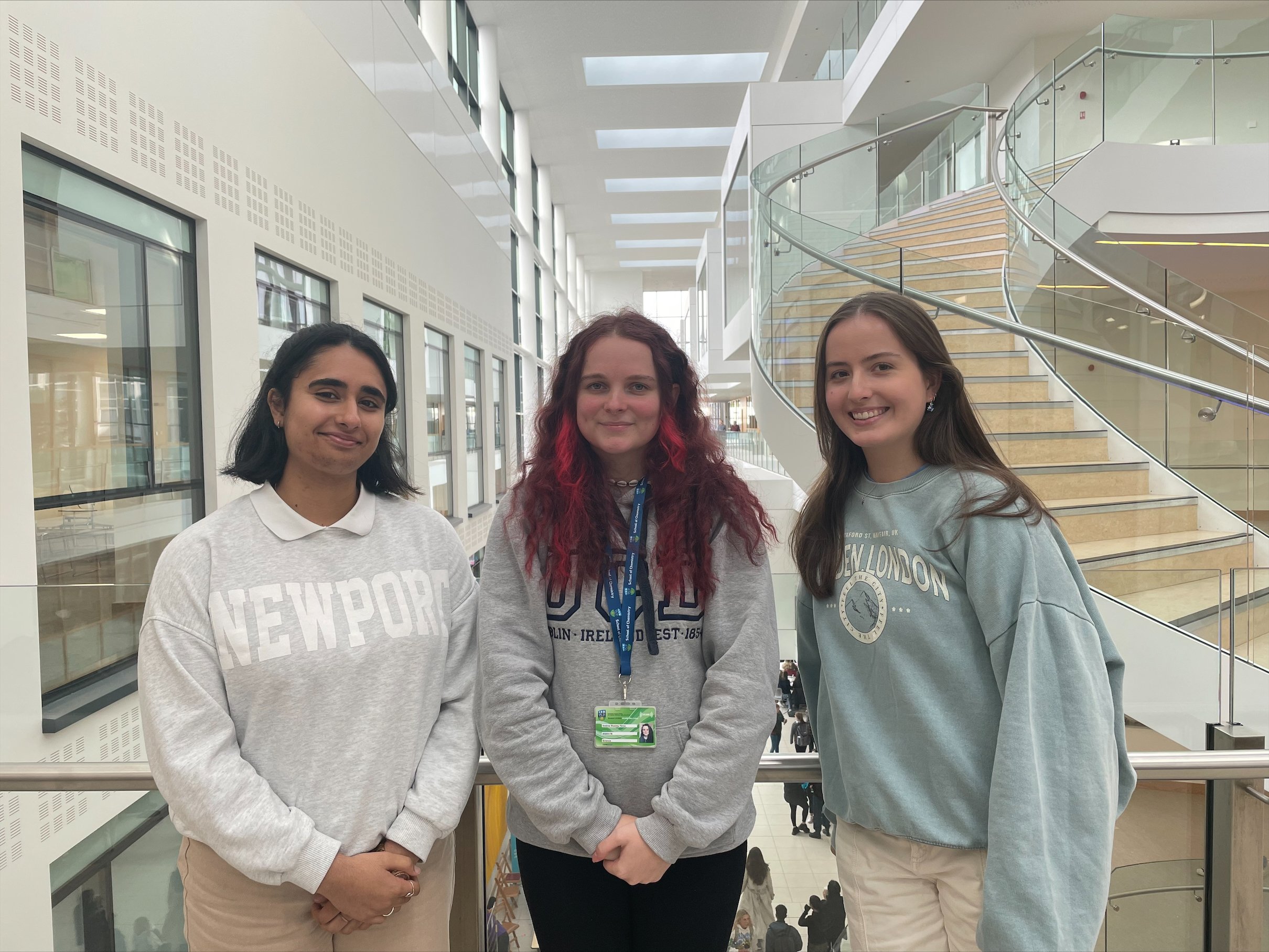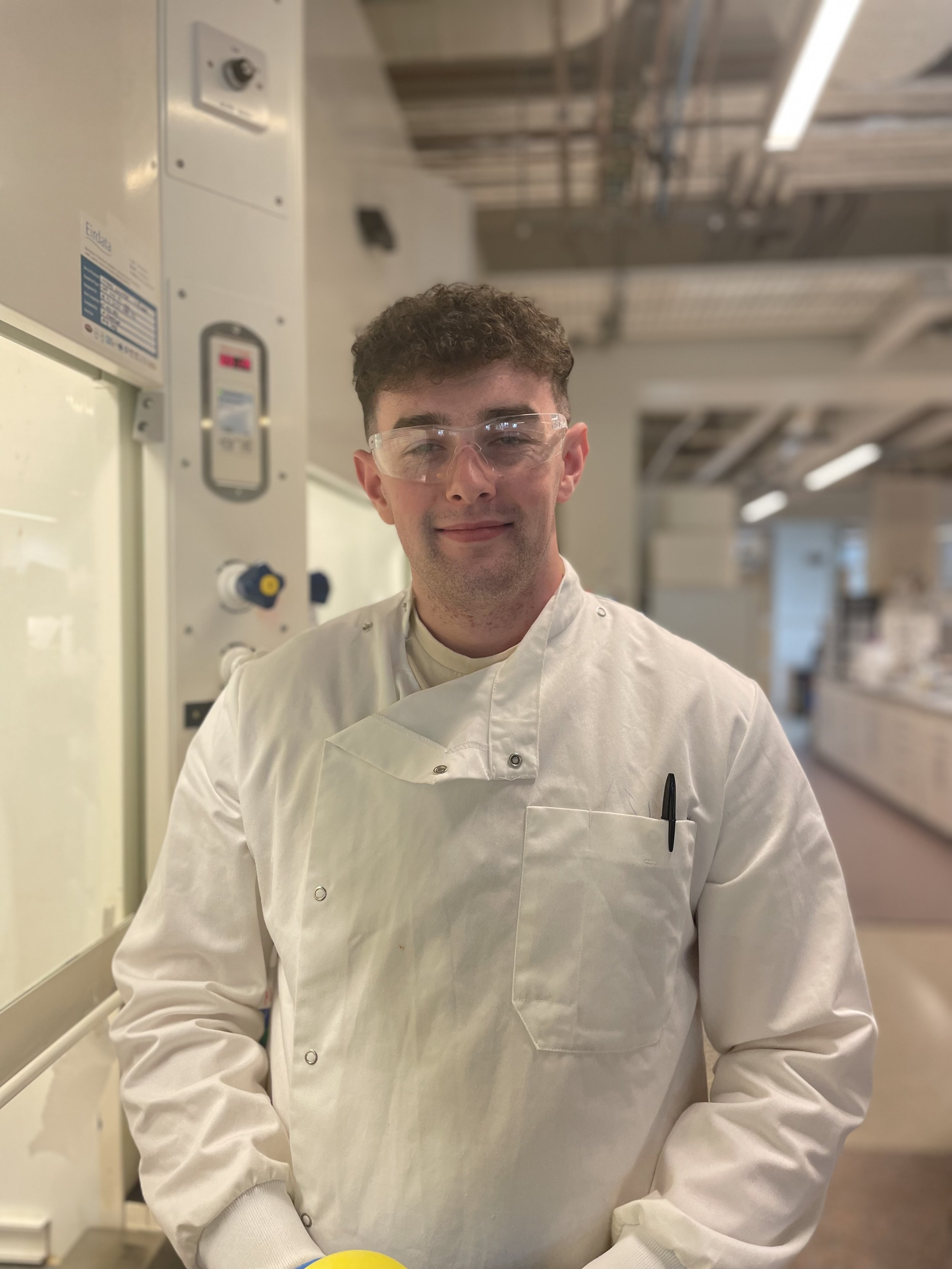Welcome Faith, Alannah and Ieva!
/A warm welcome to our three fourth-year students, Faith, Alannah and Ieva, who will be conducting their final year research projects in the O’Reilly research group.
A warm welcome to our three fourth-year students, Faith, Alannah and Ieva, who will be conducting their final year research projects in the O’Reilly research group.

Amber recently attended the Annual BiOrbic Research Day, an event showcasing work being completed across Ireland to develop our bioeconomy. Amber received the best student presentation award for her talk titled “Development of Novel Bio- and Organocatalytic Cascade Methodology for the Synthesis of Complex Alkaloids”!

Huge congratulations to Adam, who was one of the recipients of the 2023/2024 BOC Gases Award for the best PhD project within the UCD School of Chemistry! On April 25, 2024, Adam gave a presentation to the School about his research titled “Biocatalytic Routes to Complex N-Heterocycles”. You can read more about Adam’s achievement by following this link.



Congratulations to our Fourth Year Students, Craig and Ciara, who presented their research at the school’s poster session last week. Craig and Ciara worked very hard during the year and made a big contribution to the O’Reilly Group. We wish them every success in their future careers.
This semester, we have had the pleasure of hosting Emilie Tinnes, who is currently in her 3rd year of undergraduate studies, visiting from Villanova University, USA. During her time in our lab, Emilie has made valuable contributions to our work on transaminase-triggered reactions, and at the same time gained experience with a number of lab techniques. All of which she very beautifully collated into an informative and stunning poster. We wish her all the best in her future endeavours!


Congrats to Marianne who attended the Norwegian Organic Chemistry winter meeting in Skeikampen ski resort on the 4th to 7th January and received the best lecture award for her talk titled “Enzyme-Triggered Reactions with Transaminases”. The O’Reilly group are very proud!


Massive congratulations to Kathryn for her outstanding achievement in winning a poster prize at the CSCB Symposium 2023, hosted at UCD. Congratulations to her for this remarkable accomplishment!!


A warm welcome to our two fourth-year students, Ciara and Craig, who will be conducting their final year projects in the O’Reilly research group.


A warm welcome to Xingxing Xu, our master student for the summer! She will be working on transaminase-triggered reactions.

Massive congratulations to Amber on winning a poster prize at the NextGenBiocat Symposium in Graz! We congratulate her on this remarkable achievement and her dedication to scientific excellence, which serves as an inspiration to us all.


Alongside some real leaders in Organic Synthesis, Elaine presented some of the recent research from her group at a wonderful mini symposium ‘Rising Stars in Organic Synthesis’. The short talks from this Themie WebCheminar we organised by Science of Synthesis and SYNTHESIS and can be watched here.
A big welcome to Ishita (left), Andrea (middle) and Siobhan (right) who will carry out their final year projects in the O’Reilly group.

On the 30th May, I attended a special event in Brussels organised by Cefic, the European Chemistry Industry Council. Cefic was founded in 1972 and is the main association of the chemical industry in Europe, representing almost 29,000 companies.1 As part of their 50th year anniversary celebrations, a unique day was organised bringing together professors, students and industry CEO’s to - as the title of the event implies - ‘Honour Science & Celebrate Chemistry’.
This was an eye-opening experience for me, and completely different to my daily work in the labs of UCD. Coming from a university research lab where our daily attire is lab coats and runners, it was easy to feel out of place at such a grand event! Nevertheless, the students put each other at ease, 21 students from 21 EU countries participated, with research areas spanning almost as broad as our geographical origins.
In the morning, students were divided into groups and an assignment was presented to us, each topic addressing a different challenge for the future of chemistry and society. We were tasked with producing a report and will be presenting the results at the Cefic Chemical Convention in October 2022.
During coffee breaks and throughout the day, students were encouraged to interact with the professors and CEOs, who were friendly and willing to interact. Titles and accolades aside, there was a sense of coming together for the purpose of the day,
The next part of the day kicked off with a discussion moderated by BBC's Stephen Sackur on the future of chemistry. To make matters interesting, delegates were seated in a mixed fashion according to profession, this way at each table was a mix of student, professor and CEO voices. Topics such as ‘heroes in chemistry’, ‘the greatest chemical innovation in the past 50 years’, and ‘the future innovation which will make greatest impact’ were presented for discussion; with such a mixed table came many mixed opinions which enhanced the discussion. I came across questions that I openly didn’t have much insight on, despite already spending some good years dedicated to the study of chemistry. It made me realise there’s a much bigger picture and it is clear there’s no right answers for certain issues, we cannot predict or control the future for good and with many good human inventions come drawbacks and even negative impacts to society. Following this was a panel discussion featuring two industry CEOs Dr Martin Brudermüller (BASF) and Dr Ilham Kadri (Solvay), and two academics Professor Rebecca Goss (St. Andrews) and Professor Ben Feringa (Groningen, Nobel Prize laureate). The views from academia vs. industry often contrasted, but concluded with the sense that academia and industry must work together going forward. For academics it’s important to gain funding for ‘blue-sky’ research, and have a system where professors are not overburdened with bureaucracy, and for industry to take risks and support innovation.
We recreated a famous photo from the 1927 Solvay Conference featuring some familiar names – Einstein, Marie-Curie, Planck, Heisenberg, to name a few. (Figure 2) In this moment, I acknowledge it was quite serendipitous for me to be included in this cohort, and hope by attending I could represent the fantastic chemistry students in Ireland.


The day concluded with a dinner in the Cercle Royale Galois and I got the opportunity to have brief encounter with Nobel Laureate Jean-Marie Lehn. Although I didn’t have much insight to offer regarding supramolecular chemistry his area of expertise, he did recall a few trips to Dublin many years ago.
I left Brussels with some new perspectives; the chemical industry in Europe is extremely vast, multi-faceted, and feeds into every aspect of modern life. Although these industries are where our primary research is eventually channelled to, in academia we often lack insight on current state of affairs, the many layers of how the chemical industry works and impacts society as a whole.
I would like to thank Cefic, all the organisers and participants, and I am grateful for this amazing experience so early on in my studies. If you would like to read more about the event, check out this news article on the Cefic website.
- Kathryn


Congratulations to our research masters student Rachel on her graduation! Thank you for all your contributions to the group and we wish you all the best in your future endeavours. You will be missed!

Congratulations to our PhD student Amber Barry for coming joint first in the “Research in a Nutshell” talks at BiOrbic’s Annual Research Day! The title of her talk was “Development of Convergent Biocatalytic Transformations for Rapid Complex Alkaloids”.


Welcome to Shane Bailey who will complete his Master’s research project in our group this summer. Shane completed his undergraduate degree in Maynooth University and will now be working on synthesising novel transaminase substrates.

Our visiting PhD student May leaves us this week after a three-month internship. She will return to Tokyo Institute of Technology to write up her thesis. May worked on screening novel transaminases and produced some nice results in her short time here. We hope you enjoyed your time in Ireland, and that our paths may cross again in the future!

Well done to this years final year undergraduate students Lisa (left) Róisín (right), Amy (not pictured) and Orla (not pictured), on completing their projects with a poster presentation! We enjoyed having you in our lab this year and wish you all the best with the final exams!


Elaine is delighted to have been appointed as a member of the Science of Synthesis Early Career Advisory Board and looks forward to interacting with some wonderful scientists.

We say goodbye to Rachel today with a final presentation on her research masters project. Thank you for all your contributions to the group this year, we wish you every success in the future!!
